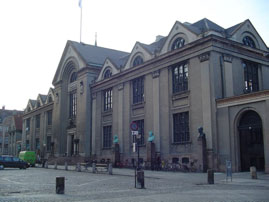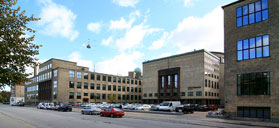Practical information

Copenhagen is the capital of the Kingdom of Denmark. Its history dates back a thousand years, ranking as capital of the country since the early 15th century. With about 1.3 million inhabitants in the greater Copenhagen area it is by far the biggest city in a small country of less than 6 million people. The city is a popular tourist destination as it offers numerous historical monuments, as well as countless cultural sites and events, such as the world’s second-oldest amusement park, Tivoli Gardens – only second to the more than 400-year-old Bakken, located just North of the city. Popular tourist destinations further include the (very) Little Mermaid at the Harbour Front ‘Langelinie’, Louisiana Museum of Modern Art in Humlebæk, North of Copenhagen, or CopenHill – the new urban mountain sports center built on the roof of a 85m high powerplant. It is also worth noting that the National Gallery of Denmark is located right next to the conference venue, as are the Rosenborg Castle, which is the national vault housing the Crown Jewels that belonged to the last 15 Danish kings.
The conference will be jointly housed by the University of Copenhagen and the Geological Survey of Denmark and Greenland. The University of Copenhagen, established in 1479, is the oldest university in Denmark and with its 40,000 students and 9,000 staff one of the largest in Scandinavia. It has fostered many great scholars through the centuries, such as Ole Rømer, H.C. Ørsted, Søren Kierkegaard, Inge Lehmann, and Niels Bohr, and is currently the highest ranking university in continental EU (Shanghai ARWU Index). It is divided into six faculties, of which the faculties of Health and Science – each with more than 10,000 students and 4,000 employees – are the largest.

The Geological Survey of Denmark and Greenland (GEUS) is an independent research and advisory institution within the Danish Ministry of Climate, Energy and Utilities, focusing on Earth systems processes. With a staff of ~300 employees, GEUS maintains a strong position in research and consultancy notably within geological mapping and associated compilation and data storage, but also advising government and private partners on subjects regarding monitoring, climate, energy, environment, mineral and water.
GEUS is closely affiliated with the University of Copenhagen through the Geocenter Denmark initiative.
